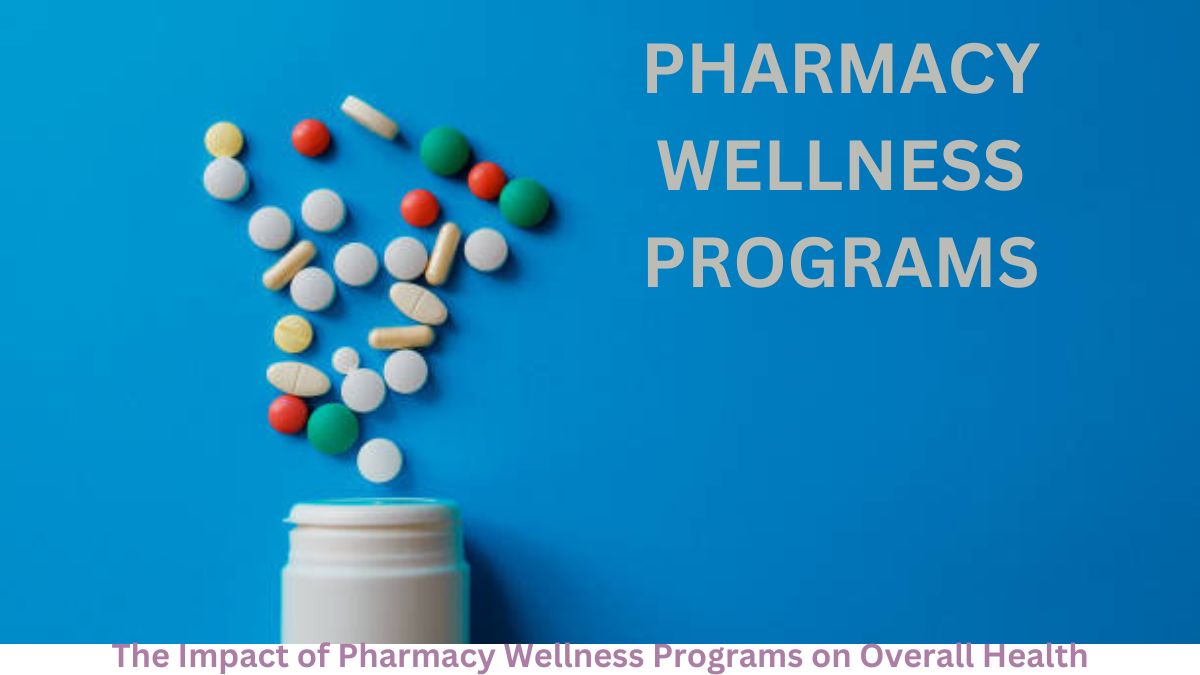Introduction:-
“Unlocking Wellness: The Impact of Pharmacy Wellness Programs on Overall Health“
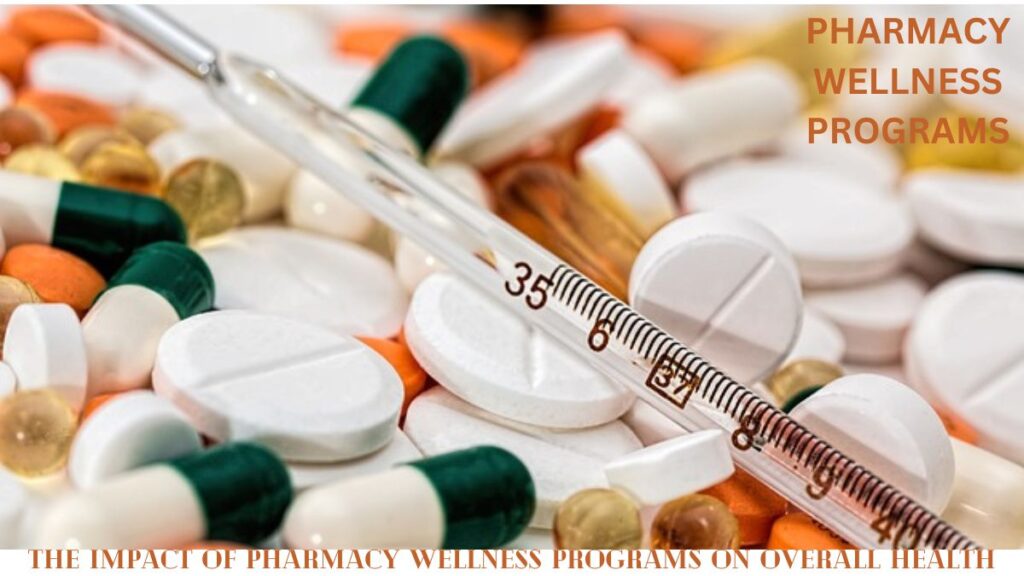
In today’s fast-paced world, maintaining optimal health is a priority for many. However, achieving and sustaining wellness can sometimes feel like an uphill battle. Fortunately, there’s a hidden gem in the realm of healthcare – pharmacy wellness programs. These programs offer a holistic approach to health, going beyond merely dispensing medications to address the root causes of health issues and promote overall well-being.
Pharmacy wellness programs are designed to complement traditional healthcare services by providing personalized support and guidance to individuals seeking to improve their health. From managing chronic conditions to promoting preventive care, these programs offer a range of services tailored to meet the unique needs of each patient.
One of the key advantages of pharmacy wellness programs is their accessibility. Unlike traditional healthcare settings, pharmacies are often conveniently located within communities, making them easily accessible to individuals seeking support for their health goals. This accessibility plays a crucial role in bridging the gap between patients and healthcare providers, empowering individuals to take control of their health journey.
Moreover, pharmacy wellness programs offer a wide range of services aimed at addressing various aspects of health. These may include medication therapy management, disease management, immunizations, nutritional counseling, and lifestyle interventions. By taking a comprehensive approach to health, these programs empower individuals to make informed decisions about their health and well-being.
Another significant benefit of pharmacy wellness programs is their focus on prevention. Rather than waiting for health issues to arise, these programs emphasize proactive measures to prevent illness and promote wellness. Through education, screenings, and lifestyle modifications, individuals can reduce their risk of developing chronic conditions and improve their overall quality of life.
Furthermore, pharmacy wellness programs often incorporate technology to enhance the delivery of care. From mobile apps to telehealth services, these programs leverage technology to provide convenient access to resources and support. This integration of technology not only enhances the patient experience but also improves health outcomes by facilitating communication and engagement.
In what ways do pharmacy wellness programs emphasize prevention as a key component of promoting overall health?
Pharmacy wellness programs emphasize prevention as a key component of promoting overall health in several ways:
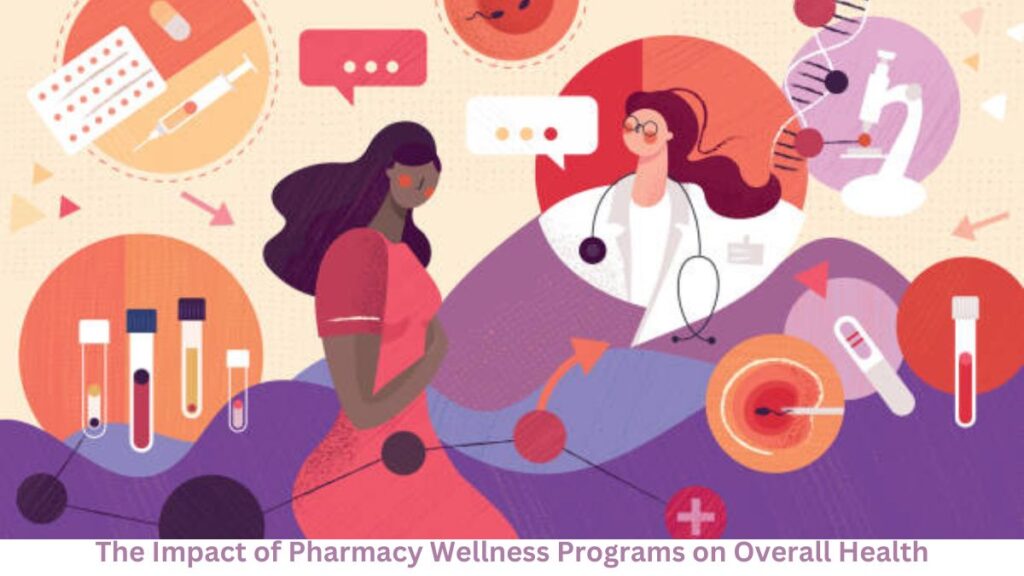
- Education and Counseling: Pharmacists often provide education and counseling to patients on preventive measures such as vaccination schedules, healthy lifestyle choices (e.g., diet, exercise), and regular health screenings (e.g., blood pressure, cholesterol). By empowering patients with knowledge, they can take proactive steps to prevent diseases and maintain good health.
- Medication Therapy Management (MTM): MTM services offered by pharmacists involve reviewing patients’ medication regimens, identifying potential drug interactions or adverse effects, and optimizing therapy to prevent medication-related problems. This proactive approach helps prevent complications and promotes better health outcomes.
- Immunization Services: Pharmacies frequently offer immunization services, including flu shots, vaccinations for preventable diseases like measles, mumps, and rubella, and vaccines for conditions such as pneumonia and shingles. Vaccinations are a cornerstone of preventive healthcare, as they help individuals develop immunity against infectious diseases.
- Chronic Disease Management: Many pharmacy wellness programs focus on managing chronic conditions such as diabetes, hypertension, and asthma. Through patient education, medication management, and lifestyle counseling, pharmacists help individuals better control their conditions, prevent complications, and improve overall health and quality of life.
- Health Screening and Monitoring: Pharmacies may offer health screening services such as blood pressure checks, cholesterol screenings, and blood glucose monitoring. Regular screenings help identify risk factors early on, allowing for timely intervention and preventive measures to mitigate health risks.
- Smoking Cessation Programs: Pharmacies often provide smoking cessation programs and resources to help individuals quit smoking, a major risk factor for various health problems including heart disease, lung cancer, and respiratory issues. These programs typically involve counseling, behavioral support, and access to nicotine replacement therapies.
- Nutritional Counseling and Supplements: Pharmacists may offer nutritional counseling and recommend dietary supplements to address nutrient deficiencies or support specific health goals. By promoting healthy eating habits and addressing nutritional gaps, pharmacists contribute to overall wellness and disease prevention.
- Lifestyle Modification Support: Pharmacies may offer support and resources for lifestyle modifications such as weight management, stress reduction, and sleep hygiene. These interventions help individuals adopt healthier habits and reduce their risk of developing chronic diseases associated with sedentary lifestyles, poor stress management, and inadequate sleep.
In summary, pharmacy wellness programs emphasize prevention by providing education, counseling, screenings, immunizations, chronic disease management, smoking cessation support, nutritional guidance, and lifestyle modification interventions. By empowering individuals to take proactive steps to maintain their health and prevent diseases, pharmacists play a vital role in promoting overall wellness and improving health outcomes.
What are some of the potential benefits of participating in a pharmacy wellness program for individuals looking to improve their overall health?
Participating in a pharmacy wellness program can offer several potential benefits for individuals looking to improve their overall health:
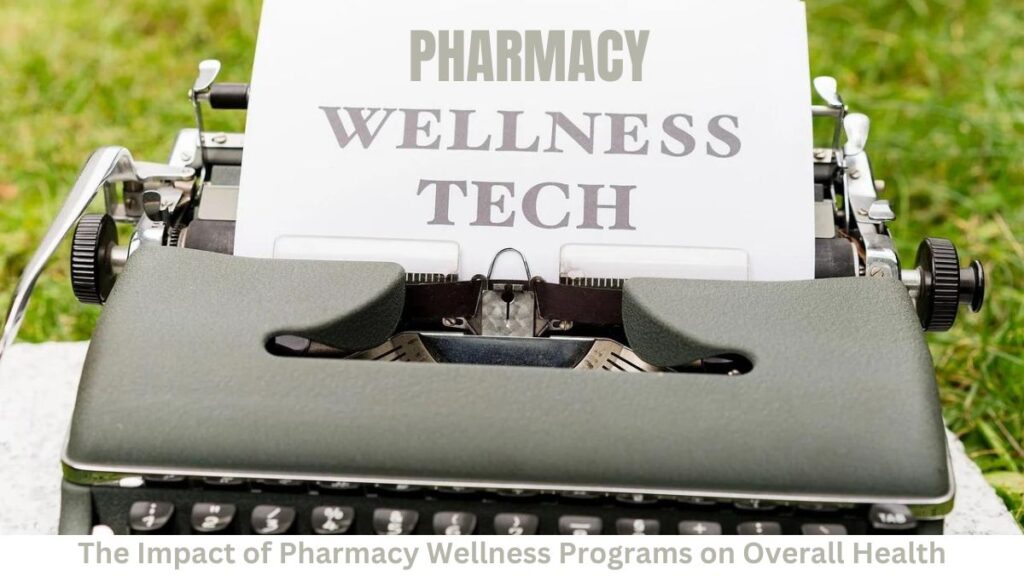
- Access to Expert Guidance: Pharmacy wellness programs often provide access to pharmacists who can offer expert guidance on various aspects of health and wellness, including medication management, lifestyle modifications, and preventive measures. Pharmacists are trained healthcare professionals who can provide personalized recommendations based on individuals’ unique health needs and goals.
- Education and Empowerment: Participating in a pharmacy wellness program can empower individuals with knowledge about preventive healthcare measures, healthy lifestyle choices, and self-care strategies. Education on topics such as nutrition, exercise, stress management, and medication adherence can help individuals make informed decisions about their health and take proactive steps to improve their well-being.
- Preventive Health Services: Pharmacy wellness programs often offer a range of preventive health services such as immunizations, health screenings, and smoking cessation programs. By participating in these services, individuals can identify health risks early on, take preventive measures to mitigate these risks, and potentially avoid the development of chronic diseases or complications.
- Medication Management and Adherence: For individuals with chronic conditions or complex medication regimens, pharmacy wellness programs can help improve medication management and adherence. Pharmacists can review medication schedules, provide medication counseling, identify potential drug interactions or side effects, and offer strategies to improve adherence, leading to better health outcomes and reduced healthcare costs.
- Support for Lifestyle Modifications: Many pharmacy wellness programs offer support and resources for lifestyle modifications such as weight management, exercise, and stress reduction. By providing guidance, encouragement, and accountability, these programs can help individuals adopt healthier habits and sustain long-term behavior change, leading to improvements in overall health and well-being.
- Convenience and Accessibility: Pharmacies are often conveniently located in communities and have extended hours of operation, making them easily accessible for individuals seeking health services and support. Pharmacy wellness programs may offer walk-in services, online resources, and mobile health apps, providing convenient options for individuals to engage in their health and wellness journey.
- Cost-Effectiveness: Participating in a pharmacy wellness program can be cost-effective compared to other healthcare services or interventions. Many preventive services offered through pharmacy wellness programs, such as health screenings and immunizations, may be covered by health insurance plans or available at a nominal cost, making them accessible to individuals regardless of their financial situation.
Overall, participating in a pharmacy wellness program can offer individuals valuable support, resources, and services to improve their overall health, prevent diseases, and enhance their quality of life. By taking advantage of these programs, individuals can proactively manage their health and well-being, leading to better health outcomes and a higher overall sense of well-being.
What role do pharmacists play in pharmacy wellness programs, and how does their expertise contribute to the program’s impact on overall health?
Pharmacists play a central role in pharmacy wellness programs, leveraging their expertise in medication management, patient education, and preventive healthcare to promote overall health. Here’s how their role contributes to the impact of these programs:
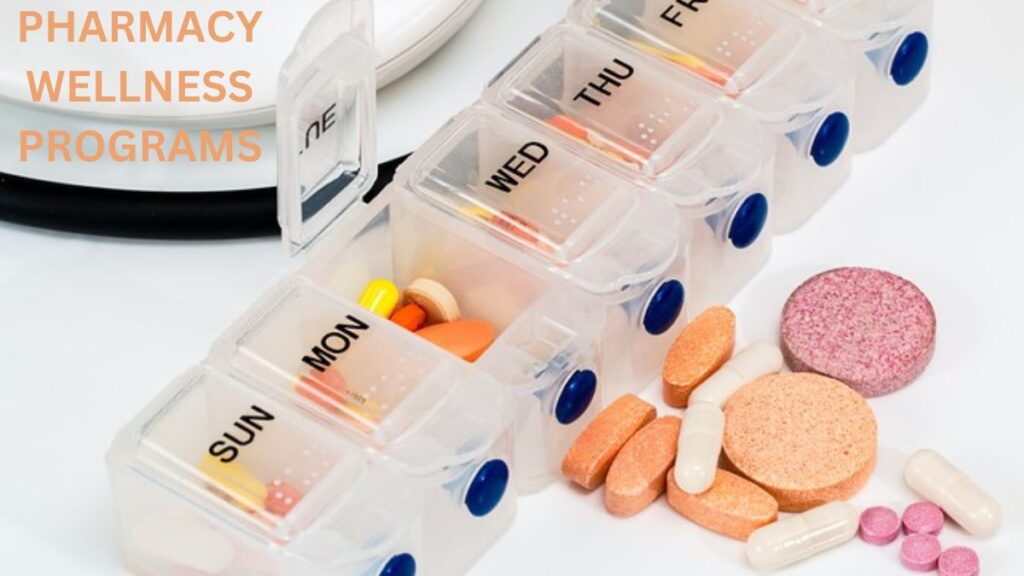
- Medication Management: Pharmacists are medication experts, responsible for ensuring safe and effective medication use. In pharmacy wellness programs, they review patients’ medication regimens, identify potential drug interactions or adverse effects, and optimize therapy to improve patient outcomes. By addressing medication-related issues, pharmacists help prevent medication errors, reduce the risk of adverse drug reactions, and enhance treatment adherence, all of which contribute to better overall health.
- Patient Education: Pharmacists provide invaluable patient education on a wide range of health topics, including medication instructions, disease management, lifestyle modifications, and preventive measures. Through one-on-one counseling sessions, group workshops, or educational materials, pharmacists empower patients with knowledge and skills to make informed decisions about their health and take proactive steps to improve their well-being.
- Preventive Healthcare Services: Pharmacists administer immunizations, conduct health screenings, and provide preventive care services such as smoking cessation programs and chronic disease management. Their expertise in these areas enables them to identify health risks early on, intervene with preventive measures, and promote healthier behaviors among patients, ultimately reducing the burden of preventable diseases and improving overall health outcomes.
- Collaborative Care: Pharmacists collaborate with other healthcare providers, including physicians, nurses, and dietitians, to deliver comprehensive care to patients. Through interdisciplinary teamwork, pharmacists contribute their unique expertise in medication management and preventive healthcare to develop holistic treatment plans tailored to individual patient needs. This collaborative approach enhances the effectiveness of pharmacy wellness programs and ensures coordinated care across healthcare settings.
- Health Promotion and Advocacy: Pharmacists serve as advocates for public health and wellness, actively promoting health literacy, disease prevention, and healthy lifestyle choices within their communities. Through community outreach initiatives, health fairs, and health education campaigns, pharmacists raise awareness about preventive healthcare measures and encourage individuals to prioritize their health and well-being. Their advocacy efforts contribute to the broader impact of pharmacy wellness programs on population health.
- Continuous Professional Development: Pharmacists engage in ongoing education and training to stay updated on the latest advancements in pharmacy practice, pharmacotherapy, and public health. Their commitment to continuous professional development ensures that they are equipped with the knowledge and skills needed to deliver high-quality care and innovative services through pharmacy wellness programs, ultimately enhancing the program’s impact on overall health.
Overall, pharmacists play a multifaceted role in pharmacy wellness programs, leveraging their expertise in medication management, patient education, preventive healthcare, collaborative care, health promotion, and continuous professional development to promote overall health and well-being within their communities. Their contributions are instrumental in advancing the goals of pharmacy wellness programs and improving health outcomes for individuals and populations alike.
In conclusion,
pharmacy wellness programs play a vital role in promoting overall health and well-being. By offering personalized support, emphasizing prevention, and leveraging technology, these programs empower individuals to take proactive steps towards better health. Whether you’re managing a chronic condition or simply striving to live a healthier lifestyle, consider exploring the benefits of pharmacy wellness programs. After all, when it comes to health, the journey goes beyond the counter.
